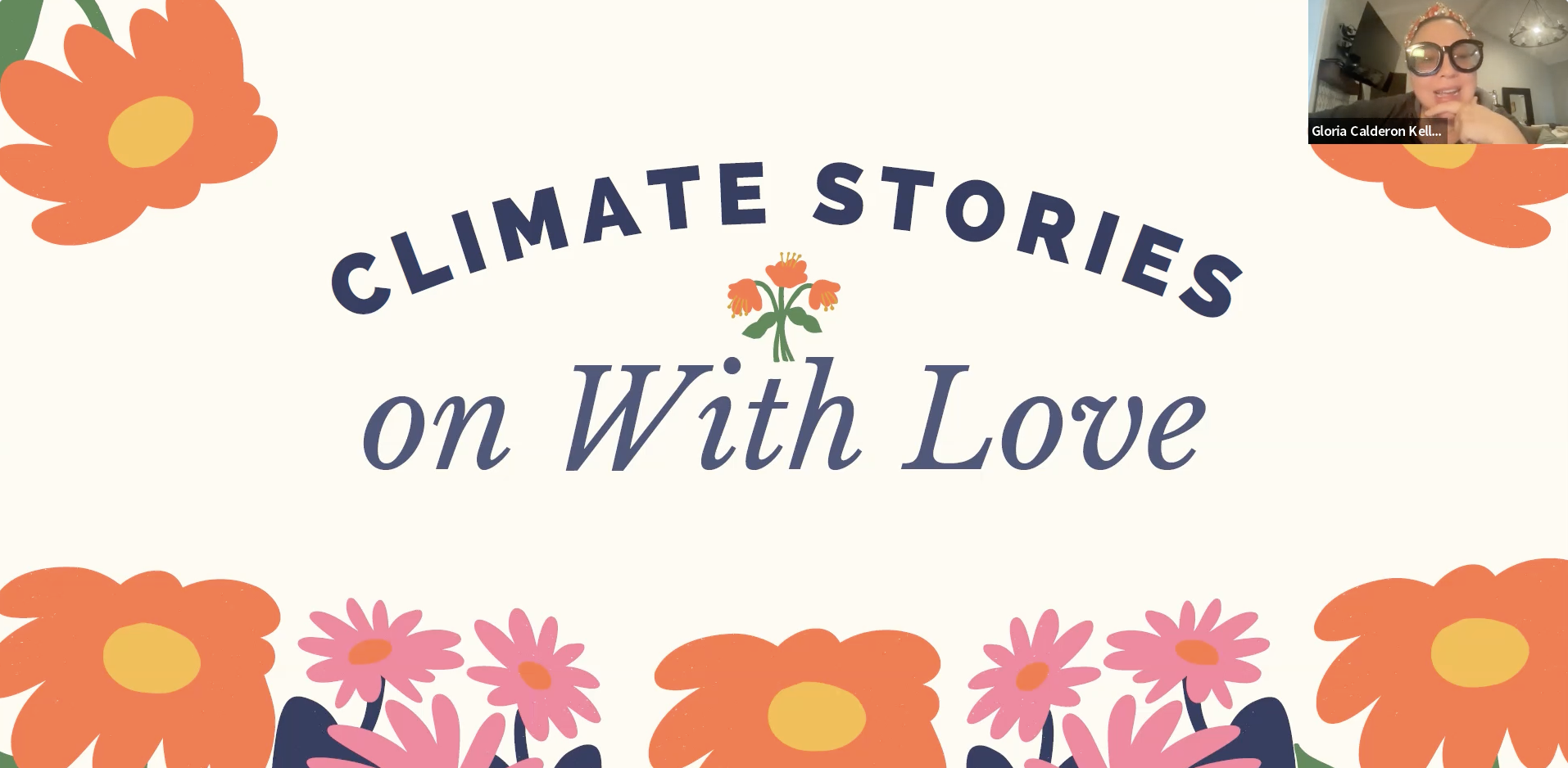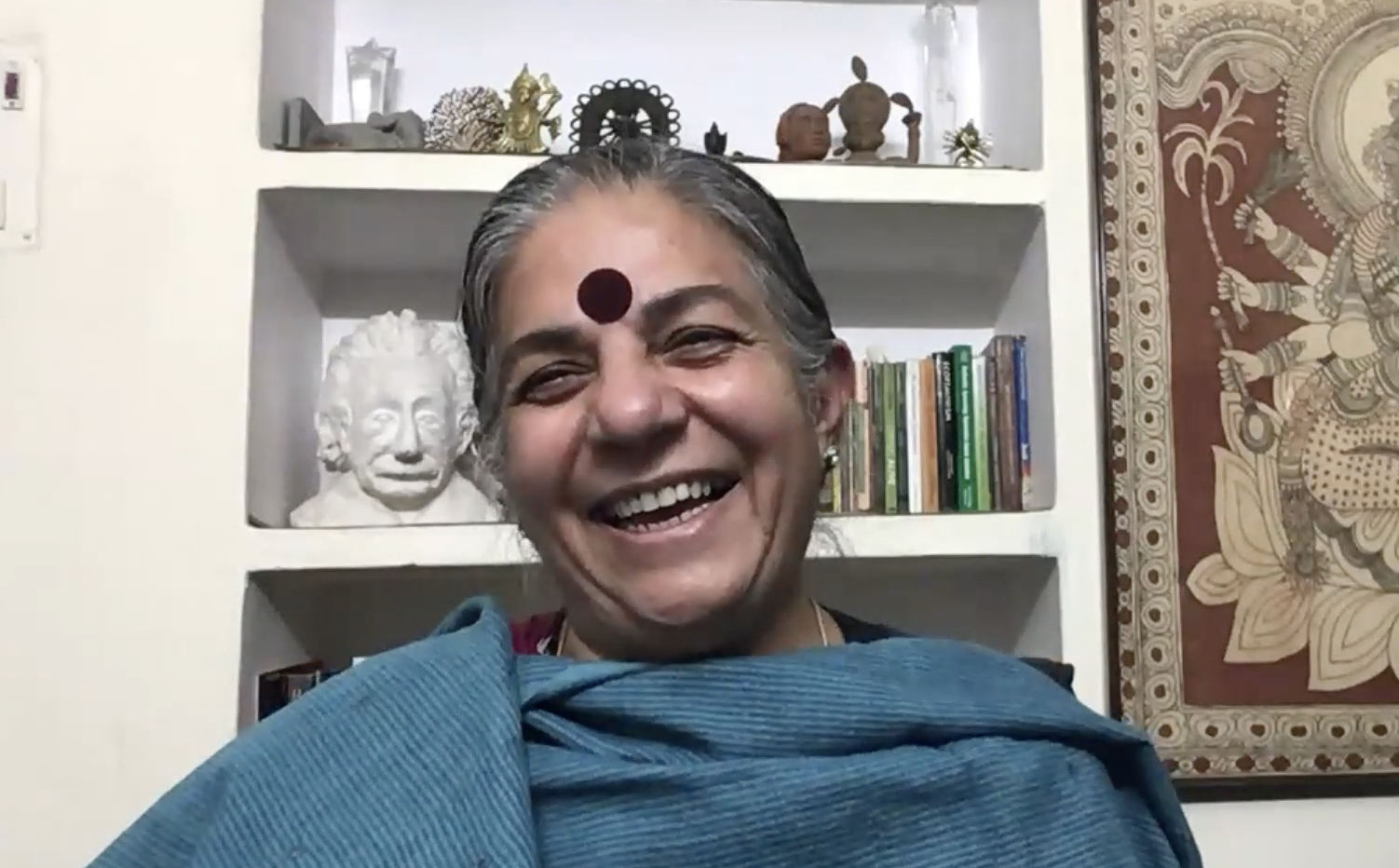In November ‘22, I was excited to help launch Annenberg’s Center for Climate Journalism and Communication first partnership with ABC Owned Television Stations. This training initiative, “Covering Climate” provided instruction to a cohort of 25 journalists across a range of beats in eight different ABC markets. Led by our Center Director, Allison Agsten, and ABC’s Director of Data Journalism, John Kelly, this biweekly training spanned over 10 sessions where program participants would gain grounding in the science underpinning climate change, learn how to access and process big data, and develop strategies for maintaining well-being when covering emotionally charged stories.
I was thrilled about our first session in November: “A Leading Activist and an Award-Winning Documentarian Set the Scene” which included two influential speakers on climate. Dr. Vandana Shiva, Indian scholar, environmental activist, food sovereignty advocate, ecofeminist and anti-globalization author, and Solly Granatstein, Emmy winning show-runner, producer and director, initiated the climate conversation by using their own work to showcase climate analysis and perspectives. Dr. Shiva’s book, Soil Not Oil looks at climate change as part of the disruption of the earth systems, agriculture systems, water systems and therefore disrupts livelihoods, specifically the poorer communities.

One of my favorite sessions included Gloria Calderón Kellett, Emmy winning executive producer, co-creator, co-showrunner, director, and actress, who encouraged participants to find and nurture climate stories at any intersection. Calderón Kellet referenced her two latest shows, “One Day at a Time” and “With Love”. I particularly resonated with her method of storytelling: using multigenerational families and props to tell climate stories on television. As the daughter of immigrant parents, I connected with her theory that immigrants were the first eco-conscious communities who recycled and reused everything. While her latino family repurposed glass jars, shown on “One Day at a Time”, I vividly remember my mother’s large yogurt containers filled with her chopped herbs. I was chuckling at Calderón Kellet’s comment, “You never knew what you were gonna get in the fridge. There was a 50% chance you were getting jelly in the jelly jar.” Playing fridge roulette is a game that I am all too familiar with, and I thoroughly enjoyed listening to an experience that was so similar to mine.
As our training initiative wrapped up in March, our participants were given an opportunity to pitch their own climate stories with guest assignment editors and storytellers. Sammy Roth, climate reporter at Los Angeles Times, Christina Bellantoni, director of USC Annenberg’s Media Center, and Stuart Sender, writer, producer, director, journalist, and showrunner, provided participants feedback with examples of their own work. Participants developed their own climate stories that involved their communities and it was evident that their climate literacy had grown exponentially.
I have already started to miss the friendly faces of our participants on Zoom and the excitement of introducing the next guest speakers. However, we now have the pleasure of seeing the fruition of this training. We have recently seen excellent reporting that the ABC stations are generating. ABC7 KGO-TV Bay Area showed a segment on one SF company advancing water recycling technologies. Watch here.
This is only the tip of the iceberg. I am very excited to see more impactful climate storytelling yet to come.
Pawan Ahuja is the Academic Program Administrator for the Center for Climate Journalism and Communication.
